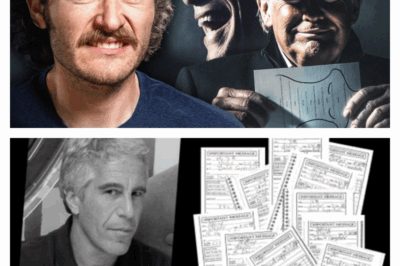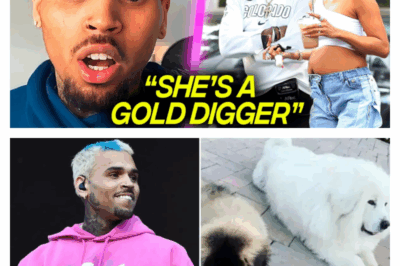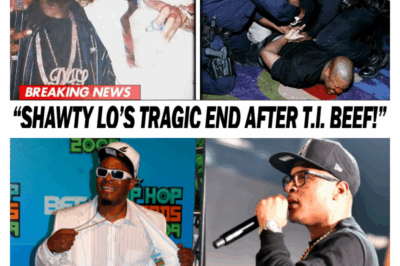In the world of hip-hop and pop music, few figures have achieved the level of ubiquity and self-styled greatness as DJ Khaled. For years, his catchphrases and “major keys” were a cultural staple, a formula for success that seemed infallible. However, recent events have painted a grim picture of a once-beloved icon whose persona has gone from “iconic” to “embarrassing,” as a new video explores the shocking reasons behind his decline. The narrative of his fall from grace is a compelling case study in how a carefully crafted public image can unravel under the weight of controversy, public missteps, and a growing sense of audience fatigue.
The beginning of DJ Khaled’s descent can be traced back to a series of controversial and tone-deaf comments. One of the most infamous was an interview where he stated his refusal to perform oral sex on a woman, while simultaneously expressing his expectation that a woman should perform the act for him. This blatant double standard ignited a firestorm of outrage, with many, including celebrities like The Rock and Smash Mouth, publicly calling him out for his sexist views. The incident was a major turning point, a moment where his “King” persona was replaced by a more uncomfortable and entitled image. The controversy exposed a deeply problematic aspect of his character, one that was no longer tolerated by a modern audience.

Beyond his personal views, DJ Khaled’s professional life has also become a source of contention. The video highlights a significant moment of betrayal, citing his partnership with Sabra Hummus. As a prominent Palestinian American, his collaboration with a brand partially owned by a company with ties to the Israeli military was seen as a profound betrayal of his heritage. This silence on the 2023 Gaza conflict, combined with his business choices, left many fans feeling disillusioned. In an era where artists are expected to be socially and politically conscious, DJ Khaled’s perceived hypocrisy was a major blow to his credibility, transforming him from a champion of the people into a symbol of corporate opportunism.
The decline was further fueled by a series of viral incidents that showcased a level of entitlement and detachment that was stunning to behold. An Instagram video of two men carrying him to a car to avoid getting his expensive sneakers dirty drew widespread mockery. The incident was widely viewed as a clear example of his inflated ego and a stark contrast to the everyday struggles of his fans. Similarly, his public display of buying lottery tickets, despite his multi-millionaire status, was criticized as being insensitive and out of touch. These seemingly minor moments accumulated over time, creating a powerful narrative of a man who was no longer relatable or worthy of the immense success he had achieved.

His professional relationships also began to fray, most notably with reggae artist Sizzla. The video mentions a painful and public feud that began when Sizzla, who is the godfather to Khaled’s son, received a plaque for their collaboration. Sizzla was enraged by the small font size of his name and the delay in receiving the award, which he interpreted as a sign of disrespect. In a powerful act of defiance, Sizzla publicly burned the plaques, a symbolic act that showed the breakdown of a once-strong professional and personal relationship. The incident served as a powerful metaphor for the growing sense of disrespect and disregard that many felt DJ Khaled was displaying toward the artists who helped him achieve his success.

Perhaps the most damning critique in the video is the argument that DJ Khaled’s success is not a result of his own artistic talent. The video suggests that his career is built on his ability to curate and collaborate with more talented artists, a formula that has grown stale. The phrase “another one,” once a triumphant declaration, now feels like a tired punchline. The video also touches on the uncomfortable issue of his use of the N-word and his perceived exploitation of Black culture. As a person who is not Black, his use of the word and his profit from a genre rooted in Black culture have become a point of frustration for many, who feel he has not given back to the community that made him a star.
The story of DJ Khaled is a cautionary tale of a star who failed to evolve with his audience. His persona, which was once seen as an aspirational, larger-than-life figure, now feels like a relic of a bygone era. The controversies, from his comments on oral sex to his silence on political issues, have exposed a fragile foundation that was built on hype rather than substance. The viral incidents of entitlement and disrespect have only hastened his fall, cementing a public narrative of a star whose reign is over. For DJ Khaled, the challenge now is to either reinvent himself or fade into the background, a fate that seems increasingly likely for the once self-proclaimed “King.”
News
“They Keep Lying About The Files: The Political Machine of Denial Surrounding the Epstein Scandal”
The saga of the Jeffrey Epstein files is not merely a story of a deceased financier and convicted sex offender;…
Chris Brown’s Meltdown: Inside the Alleged Rage After Karrueche Tran’s Secret Marriage and Twin Pregnancy Rumors with Deion Sanders
Chris Brown’s Meltdown: The Shocking Details on His Alleged Reaction to Karrueche Tran’s Rumored Marriage and Pregnancy with Deion Sanders…
Birkin Bags, Bodyguards, and Betrayal: Kai Cenat & Quenlin Blackwell Stream Reveals the Truth Behind “Don Julio,” a $25K Birkin, and the “Quinnissance”
Behind the Scenes Chaos: Kai Cenat and Quenlin Blackwell’s Stream Explodes with Birkin Bags and Surprise Contracts The full stream…
Boosie Estates Tour: Inside the $200K Fishing Lake, $150K Pool Slide, and the Brand-New House Boosie Badazz Built for His Mother in 124 Days
Boosie Estates: Inside Boosie Badazz’s $200,000 Fishing Lake, $150,000 Pool Slide, and the House He Built for His Mother Boosie…
Behind the Rainbow: Tekashi 6ix9ine Reveals the Truth About His Name, Scum Gang, the Epic Records Meeting, and Why His Crew Tried to Replace Him
Behind the Rainbow: Tekashi 6ix9ine Reveals the Truth About His Name, Scum Gang, and Early Career Betrayal Before the…
Bankhead Brawl: Inside the T.I. vs. Shawty Lo Feud, “Snitch” Accusations, the Chaos of the Dirty Awards, and a Tragic End
The Fight for Bankhead: Analyzing the Explosive T.I. and Shawty Lo Rivalry The rivalry between Atlanta rappers T.I. and…
End of content
No more pages to load






Leave a Reply